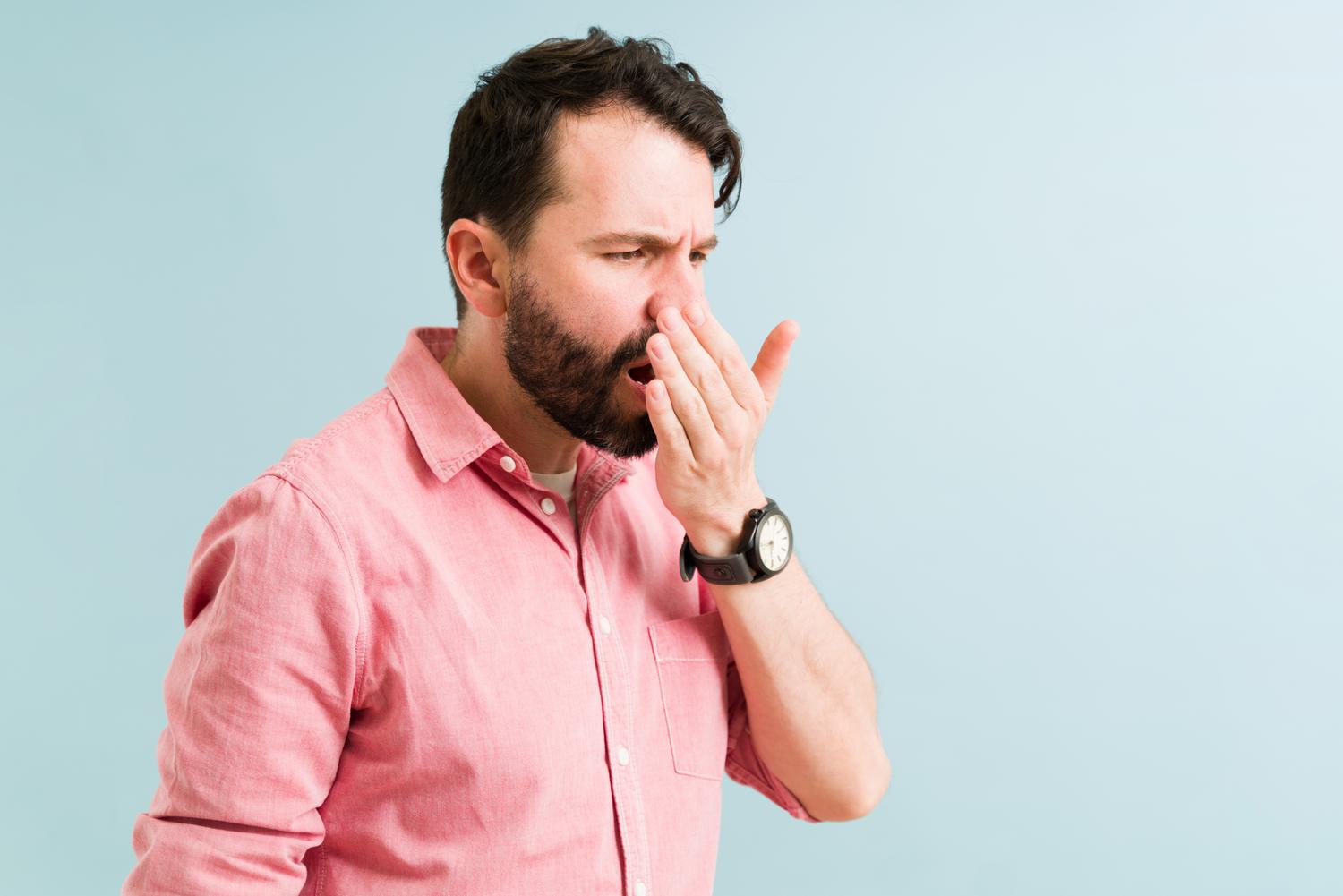How to Tell if Shortness of Breath is From Anxiety, According to Experts
Key Takeaways
- Shortness of breath from anxiety often starts during or after stress. It tends to improve with relaxation, unlike medically-caused breathing issues.
- Anxiety-related shortness of breath is typically accompanied by other anxiety symptoms like dry mouth, heart palpitations, sweating, or shakiness
- Breathing exercises and grounding techniques can offer short-term relief. However, ongoing anxiety may require therapy or medication for longer-term management.
Shortness of breath (dyspnea) is one of the most common physical symptoms of anxiety. During moments of stress or panic, you may feel like you can’t get enough air, or that your breathing is fast and shallow.
This can be scary, especially if you start to worry that something more serious, like a heart or lung problem, might be to blame. So how can you tell if your breathlessness is from anxiety or a separate medical condition?
Below, we’ll identify some common signs that your shortness of breath is anxiety-related. We'll also share some simple tips from licensed providers to help you slow your breathing when anxiety strikes, plus guidance on when it's time to see a doctor.
How to tell if your shortness of breath is caused by anxiety
When anxiety affects your breathing, it can feel a lot like symptoms of more serious medical conditions, like asthma or heart problems. However, anxiety-related shortness of breath tends to follow specific patterns.
“Feeling short of breath can be a sign of anxiety, especially if it's accompanied by symptoms like worry, irritability, sweating, or a racing heart,” says Janice Cahambing, PMHNP, a mental health provider with 20+ years of healthcare experience. “Anxiety-driven breathing often feels tight, shallow, and rapid.”
Your shortness of breath may be from anxiety if:
- It starts during or after a stressful situation
- It occurs alongside other symptoms of anxiety, like a dry mouth, heart palpitations, sweating, or shakiness
- Your chest feels tight, but there’s no wheezing or coughing
- Breathing returns to normal within 15-30 minutes
- Breathing feels shallow, but improves when you calm down
- It’s happened before and tests showed no medical cause
According to Katasha Jarrin, PMHNP, it’s important to speak with a healthcare provider about your symptoms, even if you think anxiety is the cause of your breathlessness. “Ruling out other possible medical issues can give you peace of mind and ensure that you are not going undiagnosed for other conditions,” says Jarrin.
Why anxiety causes shortness of breath
Panic, anxiety and stress can activate something called the fight-or-flight response in your body.
This response causes your body to release stress hormones like adrenaline. These hormones increase your heart rate, raise your blood pressure, and cause your breathing to speed up (hyperventilation). And when you breathe too quickly, it leads to a drop in carbon dioxide levels in your blood. This creates symptoms like:
- Dizziness
- Tingling in hands or feet
- Chest tightness
- A sense of "air hunger" (feeling like you can’t get a deep enough breath)
If you notice these symptoms happening often, especially if they’re interfering with your daily life, it could be a sign of an anxiety disorder. It’s a good idea to talk to a doctor or mental health professional about these symptoms for the right support and treatment.
When to seek emergency care for shortness of breath
Shortness of breath may be a sign of a medical emergency if you’re experiencing any of the following symptoms:
- Blue lips or fingernails
- Chest pain, pressure or squeezing (often described as an "elephant sitting on the chest")
- Coughing up blood
- Difficulty breathing while you’re lying down
- Fainting or confusion
- Ongoing cough that lasts more than 3 weeks
- Swollen ankles
- Wheezing that gets worse
- A known history of asthma, COPD, or heart conditions
- Pain that radiates down your arm or into your jaw
These symptoms can signal something other than anxiety, such as a heart attack, asthma attack, blood clot or another serious medical condition. In these cases, seek medical attention right away.
Fast-acting ways to relieve shortness of breath from anxiety
If you’re struggling with anxiety-related shortness of breath, grounding techniques may help. Grounding techniques work by forcing you to focus on your physical senses, emotions, or tasks. This helps distract you from racing thoughts, allowing your body to slow and regulate your breathing again.
Below are some helpful grounding strategies to help reduce stress and anxiety:
1. Diaphragmatic breathing
Diaphragmatic breathing, also known as abdominal breathing or belly breathing, is a type of deep breathing exercise. It slows your heart rate and helps activate the calming side of the nervous system. To try it:
- Place one hand on your belly
- Inhale slowly through your nose, letting your stomach rise
- Exhale through your mouth with pursed lips
- Repeat for several minutes
2. Try box breathing
Box breathing is a type of breathing exercise where you inhale for 4 seconds, hold for 4 seconds, exhale for 4 seconds, and then hold for 4 seconds. By repeating this, you can help reset your breathing pattern.
3. Focus on your senses
Try thinking about what you can taste, touch, smell, hear or see. Touch something nearby, eat a sour candy, name all of the colors in your environment, or run cool water over your hands. This can help pull attention away from racing thoughts.
4. Dip your face in ice water
Putting your face into a bowl of icy cold water activates something called the mammalian dive reflex. This reflex is a natural response that slows your heart rate and helps calm the nervous system.
“Submerging your hand or face in cold water for a few seconds can reset the nervous system,” says Amy Azih, PMHNP. It tells your body to conserve oxygen and slow your breath, which can reduce rapid breathing and bring down feelings of panic.
5. Play your favorite song
Playing a song can help ease shortness of breath from anxiety by calming your nervous system, and encouraging more regular breathing. Music gives your brain something steady to focus on, breaking the cycle of anxious overthinking about your breath.
6. Exercise
When you exercise, your body releases “feel-good” chemicals such as endorphins and serotonin. Exercise also reduces stress hormone levels and helps regulate your breath and heart rate.
You don’t need to run sprints or deadlift to feel these benefits. Even light movement, like “cozy cardio”, can be mentally and physically calming.
Long-term ways to manage anxiety
While the techniques above can be fast and effective at helping you calm your breathing, they are not a long-term fix for anxiety.
If shortness of breath, extreme worry, or other anxiety symptoms are affecting your day-to-day, consider talking to a mental health provider. They may recommend talk therapy, medication, or a combination of the two to help improve your mental health.
Talk therapy
Talk therapy, also known as psychotherapy, involves talking through your feelings and concerns with a licensed therapist or counselor.
Cognitive behavioral therapy (CBT) is considered to be one of the most effective talk therapy methods for treating anxiety symptoms like panic attacks and performance anxiety. It teaches you how to identify and reframe anxious thoughts, then change the behaviors that follow.
Medication
Doctors often prescribe antidepressants or anti-anxiety medications to help manage anxiety. These medications can improve your mood and reduce both emotional symptoms (like worry) and physical symptoms (like shortness of breath).
Common antidepressants include:
- SSRIs like sertraline (Zoloft)
or fluoxetine (Prozac) - SNRIs like venlafaxine (Effexor)
or duloxetine (Cymbalta)
Fast-acting anti-anxiety medications (used short-term) include: - Benzodiazepines (e.g., Lorazepam/Ativan, Alprazolam/Xanax)
Antidepressants can take several weeks to start working, so they’re not ideal for quick relief. For faster help with symptoms like shortness of breath, grounding techniques like the ones above may be more effective.
How Sesame can help
If you're looking for help managing your anxiety, Sesame makes it easy to get same-day care from licensed mental health providers. You can choose from:
- Online therapy with licensed therapists who can teach you effective relaxation techniques and coping strategies
- Online psychiatry with medical doctors who can evaluate your symptoms and prescribe medication if appropriate
- Mental Health Rx, a monthly subscription for ongoing anxiety medication refills and video support from a provider of your choice
No long waits, no surprise bills, and no insurance needed. Getting help for anxiety doesn’t have to be complicated, and with Sesame, it isn’t.









